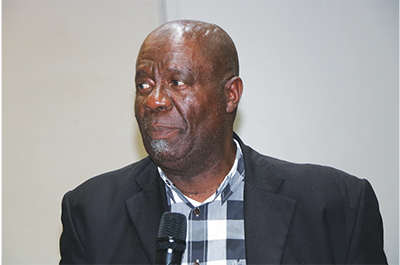By Thoboloko Ntšonyane
MASERU- Some ex-miners and their beneficiaries are oblivious to the compensation they are eligible to receive through TEBA and Tshihamiso Trust, Ex-Miners Association’s Executive Director, Rants’o Mantsi has warned.
He said both of these organizations administer Tuberculosis (TB) and silicosis(a lung disease caused by exposure to silica dust in mines)compensation for miners and ex-miners who worked and are working in South African (SA) mines.
Mantsi said TEBA is responsible for administering compensation for Medical Bureau for Occupational Diseases (MBOD) while Tshihamiso Trust also administers compensation for those who have contracted TB and silicosis in SA mines.
TEBA, the recruitment agency for SA mines, is also responsible for housing the database of information for mine workers and ex-workers.
The Executive Director has attributed this ignorance to absence of proper knowledge dissemination.
He said most have become aware of this information when they arrived home following mass retrenchment in the mines.
Mantsi said even those who know, some think that if they qualify for one compensation package, they do not qualify for the other. He said it is possible that a person can be compensated on both of these compensation packages.
He said there was also no programme in place that would retain miners and alleviate them to hardships such as sustainable projects when they are retrenched from the mines.
Whereas the global TB community has registered significant efforts targeted at reducing TB mortality, there is still a long way to go and more room for increased measures to arrest high rates of TB.
Chief among those efforts, is to improve access to TB diagnosis and treatment among miners and ex-miners.
According to the reports, ex-miners are also feared to be at an increased risk for TB, given high rates of silicosis and HIV, two diseases that significantly increase the risk of developing TB.
Earlier this year, Tshiamiso Trust announced that it has settled tuberculosis (TB) and silicosis claimants’ compensation of about 5 056 Basotho.
“As at 27 February 2023, 40,746 claims had been lodged in Lesotho and 17,742 Benefit Medical Examinations (BMEs) had been conducted.
“5,056 Basotho claimants have received their compensation, amounting to R433.9 [million]. This makes up 43% of all Tshiamiso Trust claims paid,” reads the Tshiamiso Trust statement.
The compensation amounts are reported to be from M10 000 to just over M534 000 and most are said to range in the north of M74 000.
It reported that five countries have been beneficiaries in which the Trust has a presence, South Africa, Lesotho, Botswana, Eswatini and Mozambique; there are over 111 000 claims lodgments that have been received.
Tshiamiso Trust also reported that it has settled in excess of over M1 billion, of the over 11 316 eligible TB and silicosis claims.
The Trust further says: “The history of silicosis in South Africa dates from the late 1880s when gold mining began. The gold was locked in quartz veins, a type of rock that also contains high concentrations of silica. Crystalised silica particles can cause significant respiratory damage if inhaled.
“In the earlier days of gold mining, dust control, the use of personal protective equipment, and health and safety standards were not as advanced as they are today.
“Silicosis began to manifest amongst the mining workforce very early in the history of gold mining on the Witwatersrand.”
According to the Trust, people who are eligible for compensation are mine workers with permanent lung damage from silicosis or TB and thus they should have contracted from doing “risk” at one of the qualifying mines for compensation of its workers in SA.


